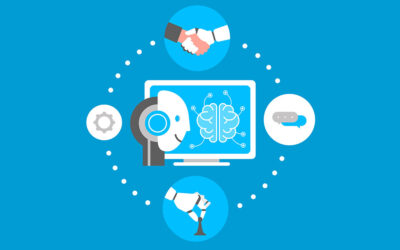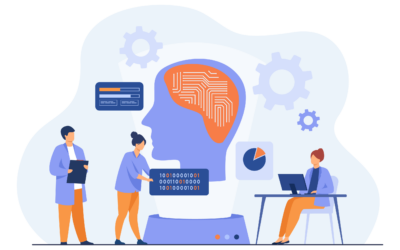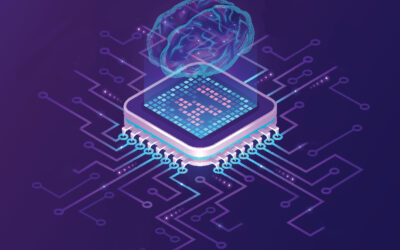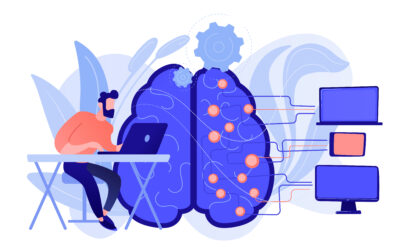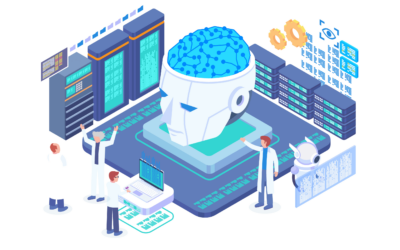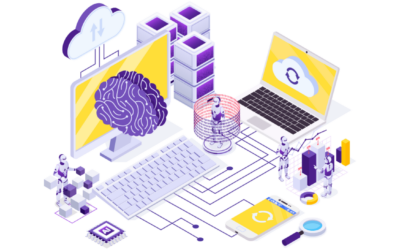This article discusses the steps and considerations for creating a machine learning use case to improve business processes. It explains the concept of machine learning and the importance of data quality and volume in creating accurate predictions. The article outlines the steps in creating an ML use case, including defining the problem, collecting and preparing data, defining product objectives and metrics, training and evaluating the model, and deploying the model. The article also discusses the types of ML problems and how to discover ML use cases in existing business processes. Overall, the article emphasizes the importance of understanding business problems and identifying opportunities to use ML to create enhanced solutions.
AI Consulting: Accelerating Adoption Across Business Functions
In today’s digital age, adopting AI solutions is crucial for businesses to gain a competitive advantage. However, many organizations lack the necessary data and machine learning (ML) skill set to create valuable AI solutions. This is where AI consultants play a key role, bridging the skill set gap and accelerating the adoption of AI across business functions. AI consultants help assess an organization’s maturity level and design a transformation approach that fits the client’s goals. They also promote the creation of collaborative, cross-functional teams with analytical and ML skills, and work on creating consistency in tools, techniques, and data management practices to enable successful AI adoption.
Building Machine Learning Features on IoT Edge Devices
Enhance IoT edge devices with machine learning using TensorFlow Lite, enabling businesses to create intelligent solutions for appliances, toys, smart sensors, and more. Leverage pretrained models for object detection, image classification, and other applications. TensorFlow Lite supports iOS, Android, Embedded Linux, and Microcontrollers, offering optimized performance for low latency, connectivity, privacy, and power consumption. Equip your IoT products with cutting-edge machine learning capabilities to solve new problems and deliver innovative, cost-effective solutions for a variety of industries.
Feature Engineering for Machine Learning
Feature engineering is a crucial aspect when it comes to designing machine learning models, and it plays a big role in creating top-notch AI systems. Features are attributes that represent the problem of the machine learning use case and contribute to the model’s prediction. The process of feature engineering involves creating relevant and useful features from raw data combined with existing features, adding more variables and signals to improve the model’s accuracy and performance. It starts manually and can be accelerated by adding automated feature engineering tools and techniques. Follow the steps of feature engineering to optimize your machine learning models and create innovative products.
Machine Learning in IoT: Advancements and Applications
The Internet of Things (IoT) is rapidly changing various industries by improving processes and products. With the growth of IoT devices and data transmissions, enterprises are facing challenges in managing, monitoring, and securing devices. Machine learning (ML) can help generate intelligence by working with large datasets from IoT devices. ML can create accurate models that analyze and interpret the data generated by IoT devices, identify and secure devices, detect abnormal behavior, and prevent threats. ML can also authenticate devices and improve user experiences. Other IoT applications benefiting from ML include predictive maintenance, smart homes, supply chain, and energy optimization. Building ML features on IoT edge devices is possible with TensorFlow Lite.
DataOps: Cutting-Edge Analytics for AI Solutions
DataOps is an essential practice for organizations that seek to implement AI solutions and create competitive advantages. It involves communication, integration, and automation of data operations processes to deliver high-quality data analytics for decision-making and market insights. The pipeline process, version control of source code, environment isolation, replicable procedures, and data testing are critical components of DataOps. Using the right tools and methodologies, such as Apache Airflow Orchestration, GIT, Jenkins, and programmable platforms like Google Cloud Big Query and AWS, businesses can streamline data engineering tasks and create value from their data. Krasamo’s DataOps team can help operationalize data for your organization.

